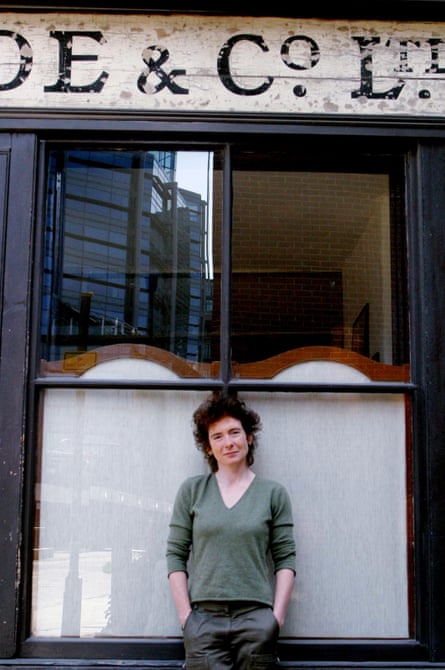The writer Jeanette Winterson is to close her shop in London because of an overhaul of the business rates system, which will dramatically increase the amount of tax retailers pay in the capital.
The award-winning author of Oranges Are Not The Only Fruit said the delicatessen store she owns in Spitalfields, east London, would have to shut because the rateable value had gone from £21,500 to £54,000.
“I had three choices, close it, sell it, or hand it over to the big boys,” she said.
My shop in London set to close under the new business rate. Rateable value rocketing from 21;5k to 54k.Tories party of small business? pic.twitter.com/8ASqu2sfPe
— JEANETTE WINTERSON (@Wintersonworld) January 23, 2017
The new business rates come into effect in April and will cut the bills for struggling northern towns. But while areas such as Bolton and Blackpool will experience a drop in business rates of up to 56%, shops on Regent Street in central London face an 87% increase.
The hike, in addition to a slump in sterling since the Brexit vote, has put pressure on retailers, many of whom fear they will be forced to close down.
“It’s either the law of unintended consequences, in which case the Tories are more stupid than anybody ever imagined, or it’s a way of driving out all the independents in London and handing over the space to the big guys,” Winterson said.
“They are going around saying: ‘Well, 70% of businesses in England will benefit’, the usual headline stuff, which is technically true, except that most high streets are boarded up and loads of businesses that are not in thriving cities are suffering.
“London is going to be particularly hard hit because property prices have continued to rise. Those who are already paying high rent simply wont be able to meet this – it’s impossible.”
Winterson said the character of London’s streets was at risk of changing for ever.
“It doesn’t matter if you’re in Marylebone or Spitalfields or round the back of Belgravia, your little newsagents, your dry cleaners, your corner shops and independent bookshops in particular will be hard hit because their turnover isn’t high,” she said.
“It will also make it incredibly difficult for any startup because even if you can rent a space, you’re still going to have to cover the business rate, which is going to cripple you. It’s a real downer on all entrepreneurship and innovation.”
She said the government should consider London as a special case. “It’s drastic. It’s a generational mistake because we’ll never get back in. Once you get the little guys out of the little shops, those premises will never again come back into the hands of sole traders.”
Business rates are a tax that retailers pay on their commercial property. But while they bring in billions for the Treasury – they were the Treasury’s sixth biggest source of income in the last year, bringing in £27.8bn – the tax has been condemned by some retailers who claim it fails to take into account financial performance and is based solely on the value of commercial property and the annual rate of inflation.
Most high street retailers pay more in business rates than they do in corporation tax, leading to criticism that the levy hands an unfair advantage to online-only retailers such as Amazon because they control less property.
Last year, a report by Colliers estate agency said the 2017 rating revaluation would produce the largest changes in rateable value for a generation, and the Institute for Fiscal Studies said the revaluation showed the government’s reliance on London.

Winterson said she and the retail consultant Mary Portas met the business secretary, Greg Clark, last week to discuss the issue.
“The problem is that, as usual, there’s no joined-up thinking in government,” Portas, who called the meeting, said. “I genuinely don’t think they worked out what a catastrophic effect this will have on local communities.
“This will stop any new businesses and entrepreneurs coming on to the market. And we will see small businesses like Jeanette’s close. After the last high street crisis, lots of towns regenerated by a mix of local government and communities coming together to work on creating and sustaining high streets. Sadly all that work will now be threatened.”

The only way to help, Portas said, was for government to freeze the increase until after Brexit.
“Take a good hard look at this dated taxation and renew it as a fit for purpose in today’s retail world,” she said. “And local governments working with their local retailers to give discounts that will keep them going through this really turbulent time.”
Portas tweeted on Monday: “This is short-term business thinking sadly from the govt. waiting to hear from @gregclarkmp and @SadiqKhan.”
